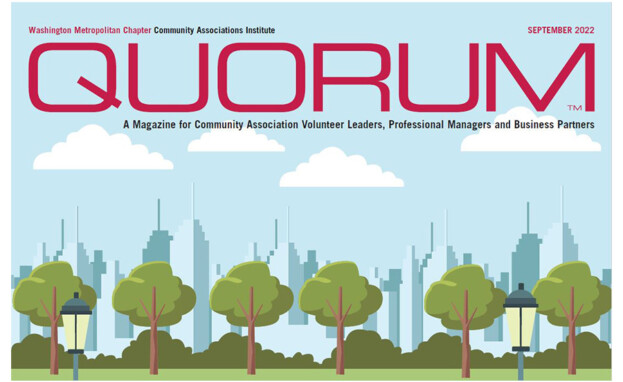This article originally appeared in the September 2022 edition of Quorum.
Neighbor-to-neighbor disputes are common (think: a neighbor blowing leaves on your yard or parking in your favorite spot) and are often best resolved between the parties themselves.
In some situations, however, association involvement is necessary. As a board member or manager, it is important to know if and when to get involved in these disputes, and your role in resolving them.
While associations generally have discretion about when, and to what extent, to get involved in neighbor disputes, there are circumstances where the association may be required by law to take action. Under the Fair Housing Act (FHA), an association may be obligated to intervene to end discriminatory conduct, and may be held liable for failing to do so, when these four conditions are met:
A neighbor is being harassed because of a protected characteristic like their race, color, religion, sex, familial status, national origin, or disability
For example, a resident repeatedly yells anti-Muslim slurs at a Muslim resident; a resident taunts and threatens another resident with a mental disability; or, a person posts racial epithets or derogatory words or images on another resident’s door. It is important to note that many states may have additional protected classes. For example, Maryland also recognizes marital status, sexual orientation, source of income, and gender identity as protected classes.
The harassment is objectively severe or pervasive
In other words, the harassment is so extreme that it interferes with or deprives the resident of their right to use and enjoy their dwelling. A single incident of harassment because of a protected characteristic may constitute a discriminatory housing practice if it is sufficiently severe.
The association knows or should know that the harassment is occurring
For example, a manager hears a resident using a racial slur against another resident, or a director receives copies of letters posted to a resident’s door telling them to “move back to your country.” There is no requirement that the resident contact the association about the harassment, only that the association have knowledge from which a reasonable person would conclude that the harassment was occurring.
The association has the power to correct the harassment
The FHA requires that associations take whatever action they can legally take to end the harassing conduct. Associations generally have the power to respond to third-party harassment under their governing documents as many declarations and bylaws include restrictions on noxious or offensive activity and grant associations the right to enforce the restriction by, for example, imposing fines, suspending privileges, or filing suit.
FHA regulations are fact-specific and should be considered on a case-by-case basis and in light of each association’s governing documents. Realistically, not every dispute or disagreement between neighbors violates the FHA. If all of the four criteria are not met, then the association is not required under the FHA to get involved in the dispute and may treat the matter like any other complaint.
When dealing with a non-FHA complaint, an association needs to determine whether the reported action or behavior rises to the level of violating the association’s governing documents. The decision to take action falls within the board’s discretion and business judgement.
Regardless of how the board proceeds, its meeting minutes should reflect that the board reviewed the matter and reached a determination—whether it be that enforcement action is warranted, that there is insufficient information at the time, or that the complaint does not rise to the level of violating the governing documents. The board should always communicate its decision to those involved.
Associations should work with their legal counsel to determine what actions to take, both from a legal and practical perspective, to address disputes within their community. Associations may also wish to work with counsel to consider additional measures to minimize their liability under the FHA, including establishing and enforcing anti-discrimination policies, providing ways for resident to safely and easily make complaints, and attending fair housing training.
You can read the full article in Quorum here: https://www.quorum-digital.com/cawm/0922_september_2022/MobilePagedReplica.action?pm=2&folio=30#pg30.
Nura Rafati is a community associations attorney at Lerch, Early & Brewer. For more information, contact her at 301-657-0730 or [email protected]


